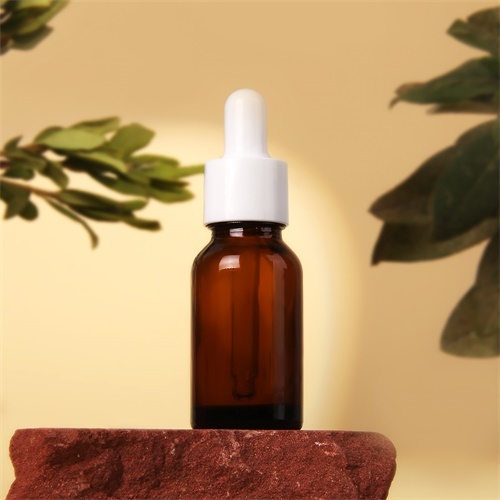Table of contents:
Specifications to Evaluate in Custom Dropper Bottles and Glass Components
Certification and Compliance for Custom Droppers in International Markets
Lead Times and Delivery Considerations for Dropper Bottle Glass Suppliers
Comparing Custom Printing Glass Options for Cost-Effective Packaging
Specifications to Evaluate in Custom Dropper Bottles and Glass Components
When evaluating custom dropper bottles, several specifications must be carefully considered to ensure the product meets both functional and branding requirements. The 15ml capacity is a common standard for essential oils and cosmetic packaging, offering convenience without compromising product volume. The amber glass material is crucial as it protects contents from UV light, preserving the integrity of sensitive liquids. Buyers should assess the thickness and durability of the glass to prevent breakage during handling and transportation. The dropper mechanism itself, typically comprising a thick black plastic lid and corrosion-resistant silicone top, should be tested for leak-proof performance and ease of use. Furthermore, customization options such as silk screen printing and hot stamping allow for vibrant, durable branding directly on the glass surface. The ability to choose custom colors beyond the classic amber enhances product differentiation in the market. Overall, these specifications collectively determine the usability, protection, and visual appeal of the dropper bottles.
Certification and Compliance for Custom Droppers in International Markets
In international markets, certification and regulatory compliance are paramount when sourcing custom printing glass dropper bottles. Buyers must ensure that the bottles meet recognized standards such as CE, RoHS, BPA Free, SGS, and ISO9001 certifications. These attest to the safety, environmental friendliness, and manufacturing quality of the glass and components. For cosmetics and essential oils, BPA-free certification is particularly important to guarantee that no harmful chemicals leach into the product. RoHS compliance ensures that hazardous substances are minimized, aligning with global environmental regulations. SGS certification provides third-party verification of product quality, while ISO9001 confirms that the manufacturing process adheres to stringent quality management systems. Adhering to these certifications not only facilitates smoother customs clearance but also builds consumer trust in the product’s safety and quality. Buyers should request documentation and verify these certifications with suppliers before finalizing orders.
Lead Times and Delivery Considerations for Dropper Bottle Glass Suppliers
Lead times and delivery logistics are critical factors in sourcing custom dropper bottles efficiently. The manufacturing process for customized glass bottles, including mold development, printing, and quality inspections, typically requires several weeks. For instance, the 15ml amber glass dropper bottles may have tiered pricing based on order volume, with larger orders not only reducing cost per piece but potentially extending lead times. Buyers should communicate their required timelines clearly and confirm production schedules with suppliers. Additionally, shipping arrangements must be planned to ensure timely delivery, especially for international orders. Packaging to prevent damage during transit is essential, given the fragility of glass. Some suppliers offer one-stop services from design to shipping, which can streamline the process and reduce delays. Understanding these lead time and delivery considerations helps buyers maintain inventory levels and meet market demand without interruption.
Comparing Custom Printing Glass Options for Cost-Effective Packaging
Cost-effectiveness is a major consideration when selecting custom printing glass options for packaging. The 15ml amber glass dropper bottle offers a competitive price range, typically between $0.10 and $0.20 per piece depending on the order quantity. Bulk orders of 100,000 pieces or more can reduce costs to as low as $0.10 each, making it an economical choice for large-scale production. Customization such as silk screen printing or hot stamping adds value but may increase unit costs slightly. Buyers should weigh the benefits of enhanced branding against the incremental cost. Additionally, selecting the right color—amber or customized shades—can impact pricing. Comparing suppliers based on their ability to offer free samples, customization services, and OEM support is important to maximize value. Ultimately, finding a balance between quality, customization, and price ensures that packaging not only protects and presents the product well but also supports the brand’s profitability.
Sourcing custom dropper bottles with custom printing glass features requires a comprehensive understanding of technical specifications, certifications, lead times, and cost factors. The 15ml amber glass dropper bottle is an excellent choice for cosmetic and essential oil packaging due to its protective qualities, convenient size, and customization potential. Ensuring compliance with international standards such as CE, RoHS, and BPA-free certifications safeguards product safety and market acceptance. Buyers must also consider production lead times and delivery logistics to maintain smooth supply chains. Cost comparisons highlight the importance of order volume and customization options in achieving cost-effective packaging solutions. By carefully evaluating these aspects, buyers can confidently select high-quality custom printing glass dropper bottles that meet both functional needs and branding goals.

Comments
Post a Comment